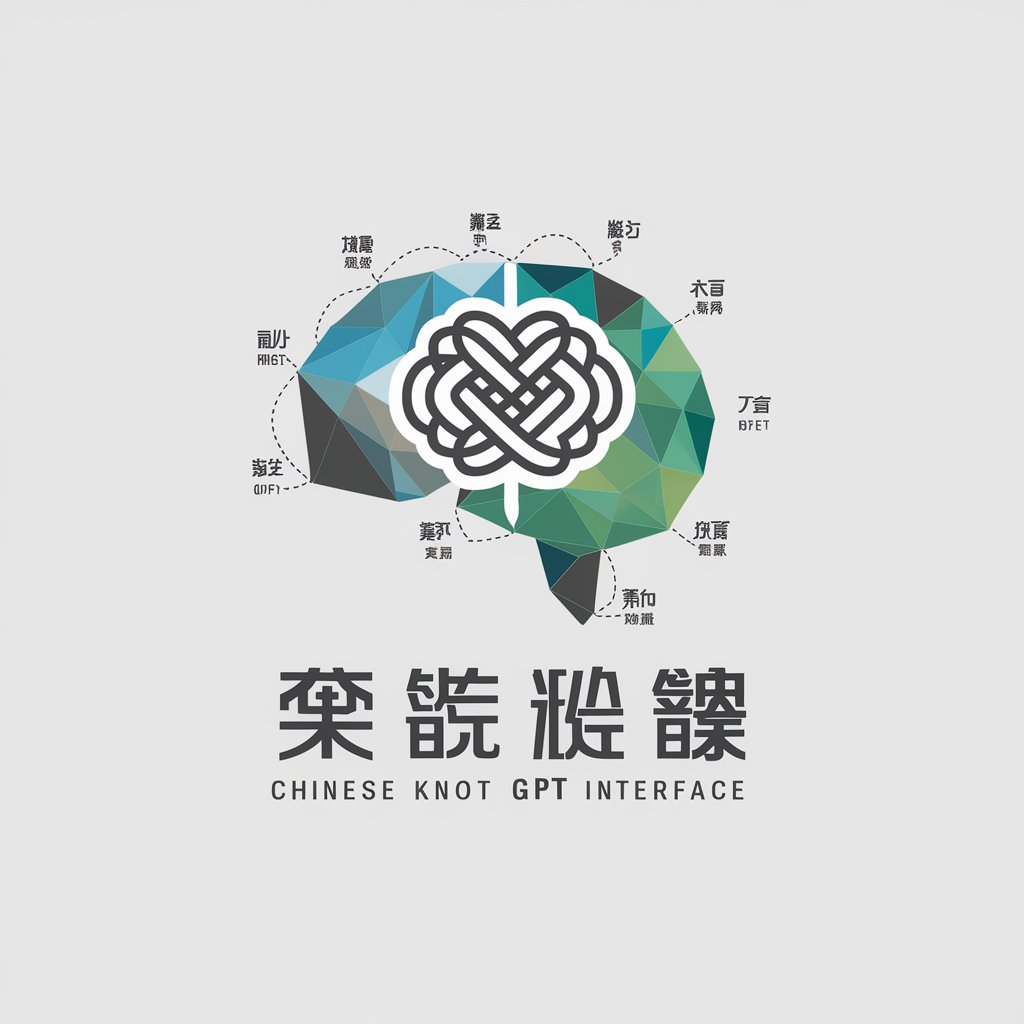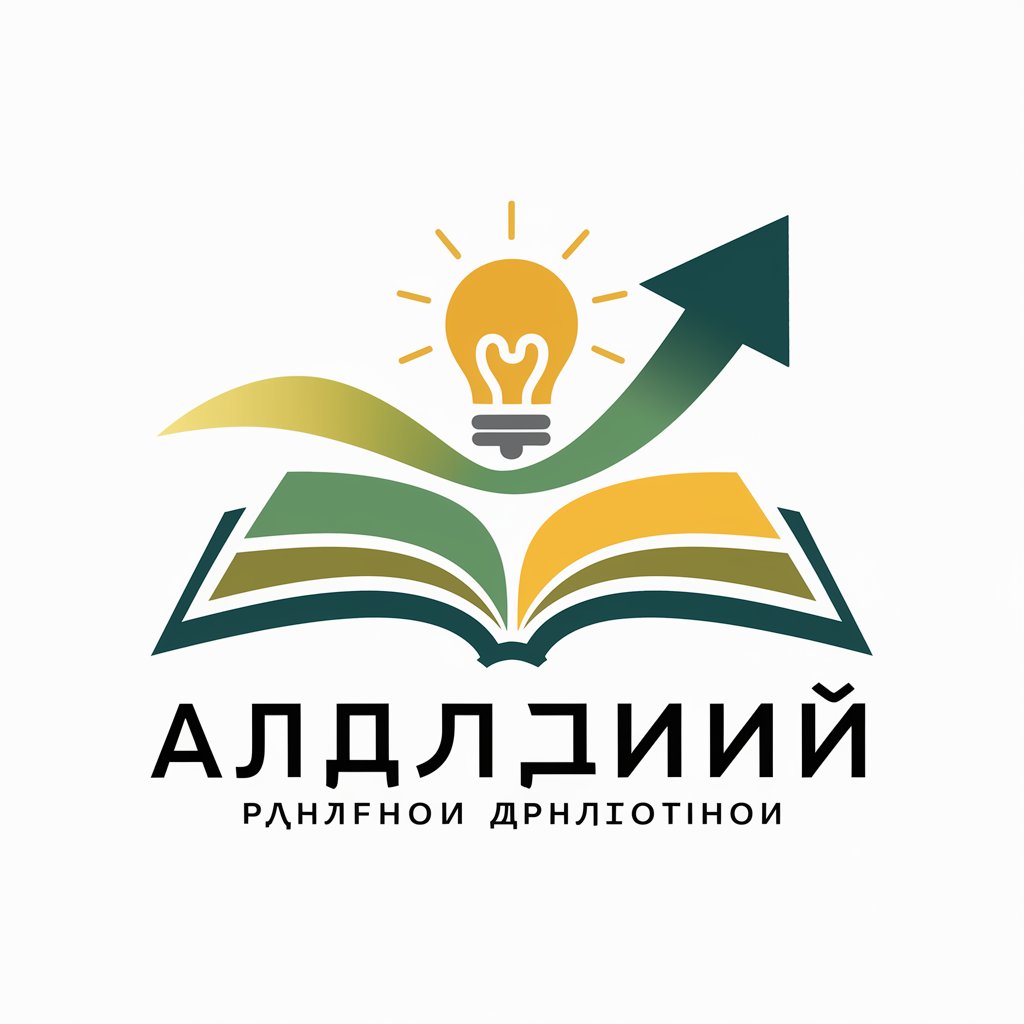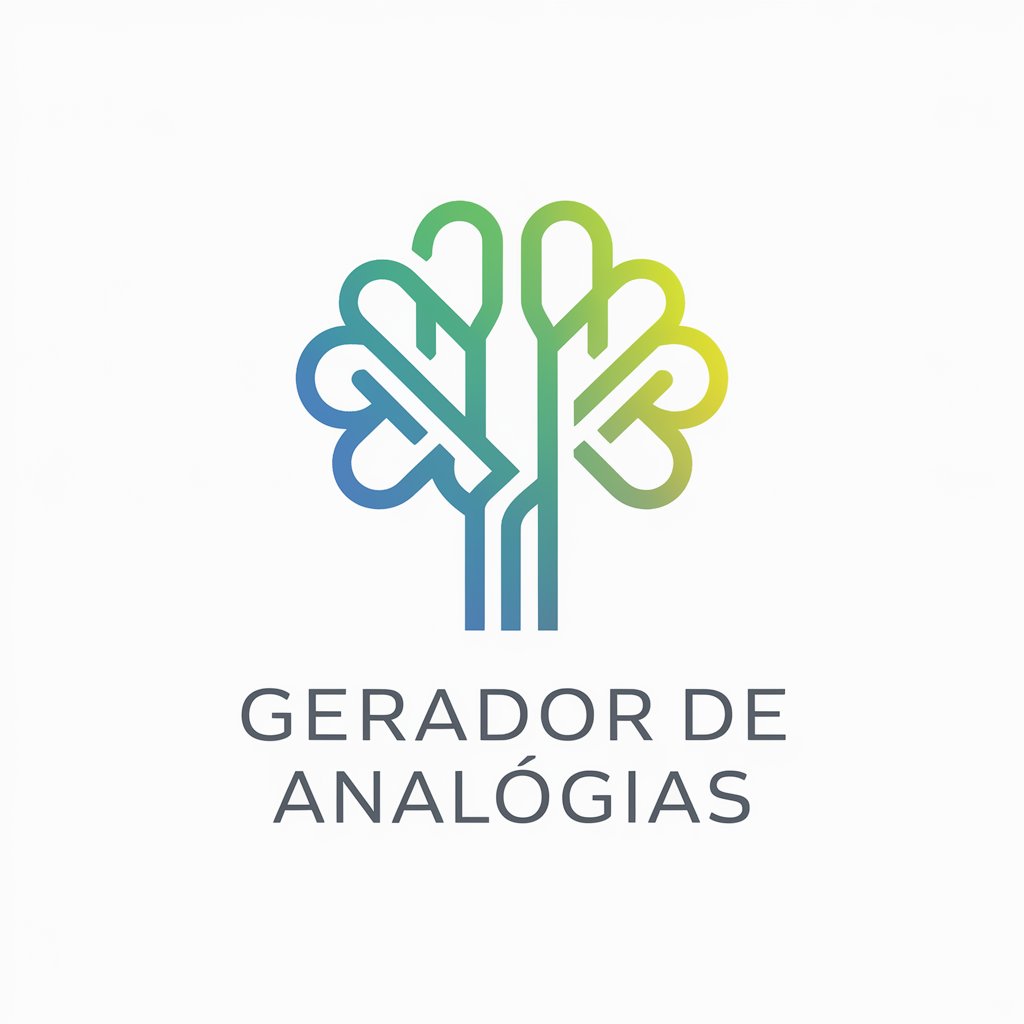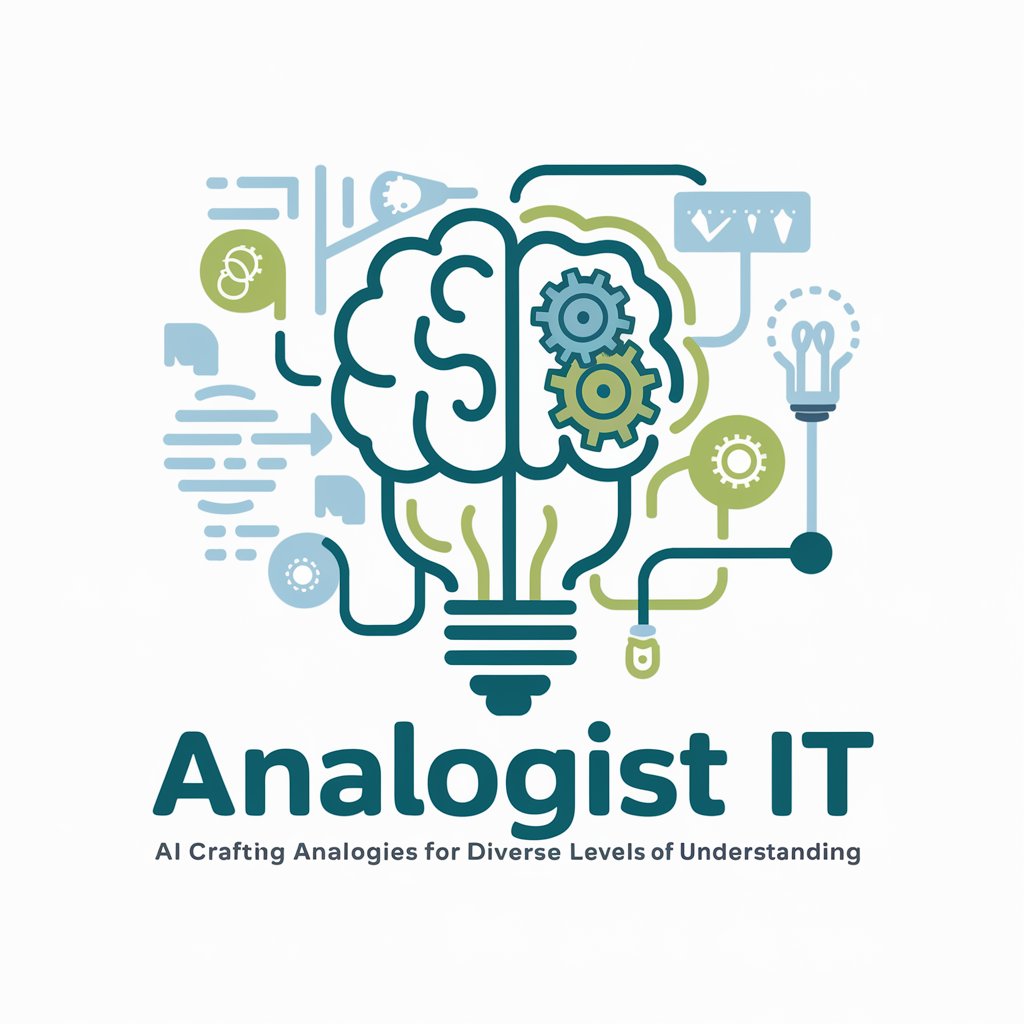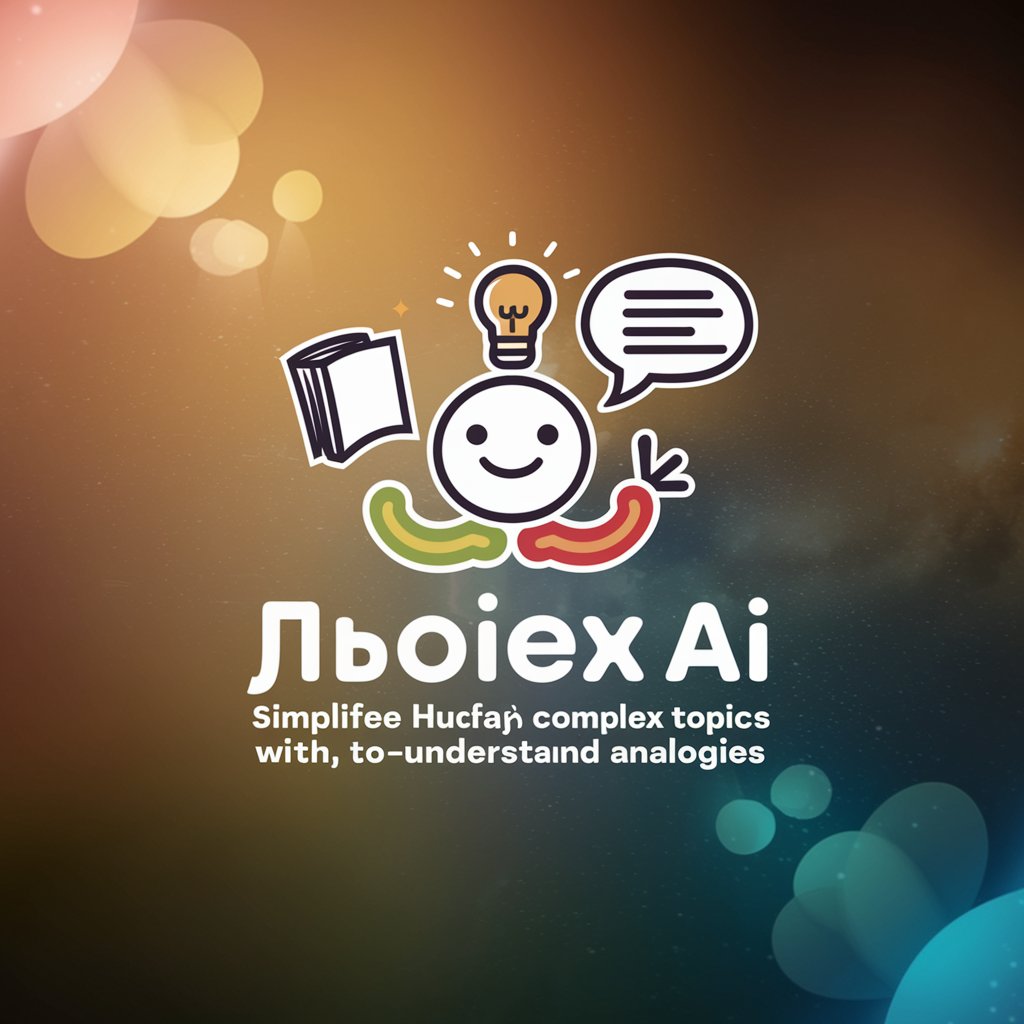
アナロジー思考トレーニング - Analogical Thinking Boost

Welcome to the world of analogy thinking!
Unleash creativity with AI-powered analogies
Describe an innovative solution using analogy thinking in technology.
How can analogy thinking help in solving complex business problems?
Give an example of analogy thinking in everyday life.
Explain the importance of analogy thinking in creative processes.
Get Embed Code
Introduction to アナロジー思考トレーニング
アナロジー思考トレーニング (Analogical Thinking Training) is designed to facilitate and enhance the process of analogical thinking, which involves drawing parallels between seemingly unrelated fields or ideas to generate creative solutions and insights. This process leverages known information and experiences, applying them in new, unfamiliar contexts. Through the iterative processes of abstraction and concretization, it helps users grasp the fundamental aspects of abstract concepts and apply similar traits to new situations. This tool is particularly useful when new ideas are needed and when thinking outside the conventional framework is essential. For example, in educational settings, it can help students relate scientific concepts to real-world applications, enhancing understanding and retention. Powered by ChatGPT-4o。

Main Functions of アナロジー思考トレーニング
Enhancing Creative Thinking
Example
In a business context, employees might use analogical thinking to develop new marketing strategies by drawing parallels with successful strategies in completely different industries.
Scenario
A team at a tech startup uses analogical thinking to innovate a customer service model by comparing it to the coaching methods used in sports.
Educational Applications
Example
Teachers use analogical thinking to explain electrical circuits by comparing them to water flowing through pipes, making it easier for students to grasp complex scientific concepts.
Scenario
During a science lesson, a teacher facilitates analogical thinking by asking students to think of the solar system as a miniature model of an atom, where electrons orbit the nucleus similar to how planets orbit the sun.
Ideal Users of アナロジー思考トレーニング Services
Educators and Trainers
Educators can incorporate analogical thinking into their teaching methodologies to help students connect new concepts with familiar knowledge, thus deepening understanding and engagement.
Business Professionals
Business professionals, particularly in innovation and strategy roles, can use analogical thinking to brainstorm and develop new approaches to product development, marketing strategies, and problem-solving.

Using アナロジー思考トレーニング: A Step-by-Step Guide
Step 1
Visit yeschat.ai for a free trial without needing to log in or have ChatGPT Plus.
Step 2
Select the アナロジー思考トレーニング from the available tool options to start using its features.
Step 3
Engage with the tool by inputting your own ideas or challenges you're facing to see how the tool applies analogical thinking to provide solutions.
Step 4
Utilize the feedback and analogies provided by the tool to enhance your problem-solving skills or develop new perspectives.
Step 5
Repeat the process with different scenarios to better understand the versatility and application of analogical thinking in various contexts.
Try other advanced and practical GPTs
Equity Oracle
AI-Powered Stock Growth Forecasts

Horror Image
Unleash AI-Powered Visual Horror.

Akademicki Ekspert
Empowering academic excellence with AI

Enhancer
Sharpen Your Words with AI

Frank August
Simplifying Human Rights for All

EdTech Guru
Empowering Education with AI

Selection Specialist せんべつ師 选品师
Empowering Your Choices with AI

AWSヘルパー
AI-powered AWS expertise, simplified.

User Persona Mentor
Craft Precise User Personas with AI

アニマルアニメーター
Bringing Anime Animals to Life with AI

強化画像生成くん
Create, Enhance, Innovate.

葉月さん
Bringing Anime Culture and Idol Dreams to Life

Frequently Asked Questions about アナロジー思考トレーニング
What is アナロジー思考トレーニング?
アナロジー思考トレーニング is a tool designed to facilitate analogical thinking, helping users draw parallels between different concepts to solve problems creatively.
How does アナロジー思考トレーニング aid in problem-solving?
The tool applies analogical reasoning to connect unfamiliar problems with known solutions from different fields, enabling innovative solutions.
Can アナロジー思考トレーニング be used in educational settings?
Yes, it is highly effective in educational settings to teach students how to link new knowledge with existing knowledge, enhancing understanding and retention.
What types of problems is アナロジー思考トレーニング best suited for?
It's particularly suited for complex problems where innovative and out-of-the-box thinking is required to find solutions.
Is there a limit to the types of analogies アナロジー思考トレーニング can generate?
While versatile, the effectiveness depends on the input data and the user's ability to define problems clearly.
